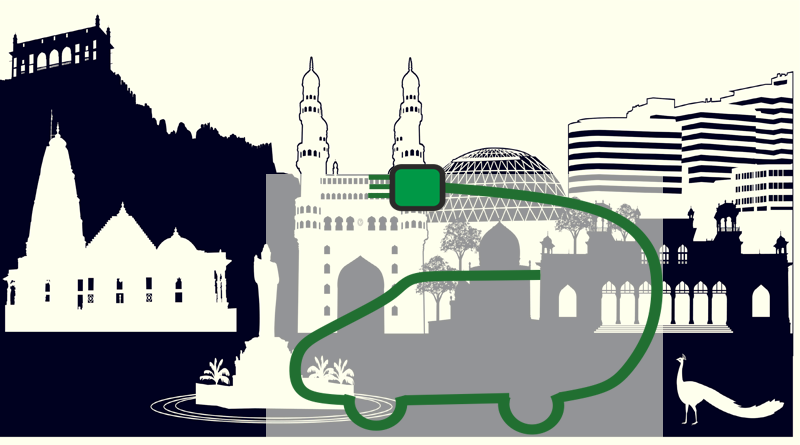Will Rs 6 per unit be the default price of charging EV’s in India?
The Telangana State Electricity Regulatory Commission approves Tariff of ₹6/kWh for Electric Vehicle Charging and battery swapping Stations in Telangana. This follows a similar pricing model in Maharashtra, and plans around the same cost in Delhi NCR too. So is it safe to assume that Rs 6 will be the cost across the country?

Early this week came news that state regulator Telangana State Electricity Regulatory Commission (TSERC) has approved a tariff of Rs6/kWh for electric vehicle charging and battery swapping stations in the state. In August, two Telangana-based power distribution companies had proposed to levy a tariff of Rs 6.1 per unit for electric vehicle charging and battery swap stations.
The Andhra Pradesh Southern Power Distribution Company Limited (APSPDCL) and Northern Power Distribution Company Limited (NPDCL), the two Telangana power utilities had come with a proposal to levy Rs 6.10 per unit at Low Tension (LT) voltage level and Rs 6.10 along with the time of day (ToD) charges at High Tension (HT) voltage level 11 Kv and above from the upcoming electric vehicle (EV) charging stations.
Read more: Telangana Discoms Proposes Rs 6.1 Per Unit For EV Charging
The approved tariff is lower by 1 Paisa. Low Tension (LT) voltage level will cost Rs 6 per unit of energy, High Tension (HT) voltage level will vary in cost. From 6 AM to 10 AM & 6 PM to 10 PM, the tariff will be Rs 7 per unit, between 10 PM to 6 AM Rs 5/kWh will apply and rest of the time slots for HT voltage will cost Rs 6 per unit.
The approved tariff is similar to Maharashtra State Electricity Distribution Corporation (MSEDEL) which proposed to charge Rs 6 per unit from EV charging stations at both HT and LT voltage levels.
The move follows its earlier decision to keep tariff close the average cost of supply. The average cost of supply at the state level was determined at Rs 6.04 per unit for the financial year 2018-19. The lower tariff will work as an incentive with its new EV policy.
Read More: The 7 States Leading India’s EV revolution
The Rs 6 pricing is interesting, as the logic for it can easily be applied across most parts of the country when considering the average cost of power for discoms. However, we believe, that much like any new offering, it might have made better sense to offer it at a lower cost for a period. Bengaluru’s Ather Energy is already setting up its own network where its own two-wheeler users will presumably get free charging. Even Tesla, the global pioneer in the space today offered free charging for its buyers at its charging stations, before transitioning to a free quota for the year, and now, finally, doing away with free almost completely. But it has done this over a full 4 year period.
Imposing a clear cost of charging upfront could play a role in keeping buyers off EV’s in our view. Unless it opens an opportunity for manufacturers to deliver a real perceived benefit by arranging deals where buyers can get it for free or at a very low rate. After all, a Rs 6 price benchmark should create opportunities for options like captive generation, or even the most ideal situation, charging stations powered completely by Renewable power, as some startups are doing.
In July, RT Koytango Private Limited, a part of Hriman Motors LLP, announced that they’re planning to set up the free electric vehicle (EV) charging stations in New Delhi, Having secured numerous green funds.




